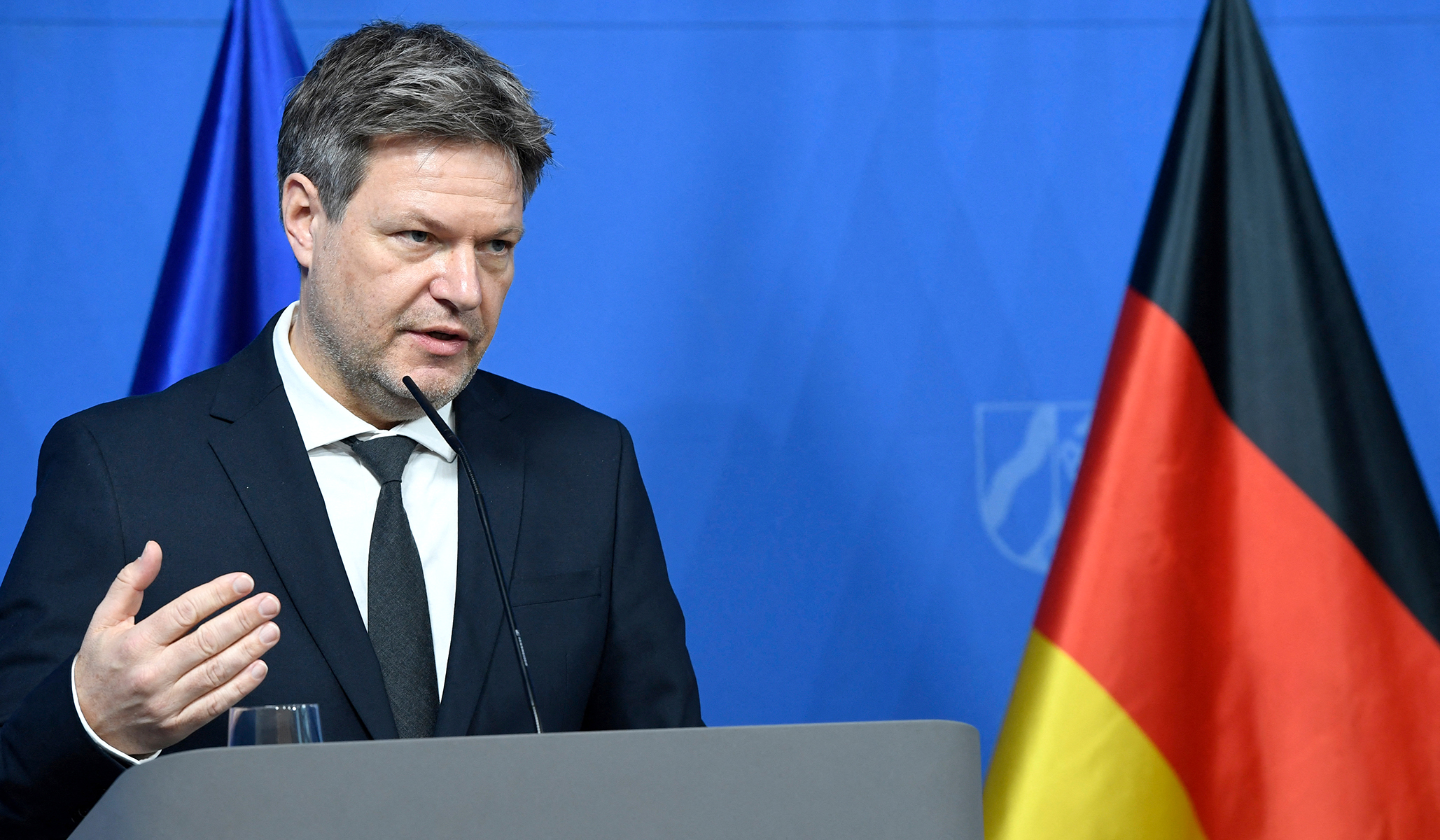To classify Germany’s Greens as climate-change “deniers” would, I reckon, be difficult, so the party’s reaction to the Russian invasion of Ukraine has been telling.
Rather than, as the Wall Street Journal put it, merely insisting “on some pablum about accelerating renewables, a la the U.S. climate left,” the Greens, who form a part of Germany’s new coalition government, have recognized that Putin’s aggression must change the priorities governing German energy policies. First things first, and the first thing that needs to be tackled is Germany’s dangerous dependence on Russian natural gas.
And so Robert Habeck, a former co-leader of the Greens and now Germany’s minister for the economy and climate, has signed off on plans for Germany to build two new terminals to import liquefied natural gas, a way of diversifying its sources of supply. Germany currently has no such terminals, another legacy of the reckless complacency of the Merkel years.
But the Greens are not stopping there.
The Wall Street Journal:
Mr. Habeck [has said] there are “no taboos” in the effort to wean Germany off Russia. That includes extending coal-fired power past the desired 2030 cutoff, and perhaps extending the lives of Germany’s three remaining nuclear power plants, which are due to shut down this year.
Foreign Minister Annalena Baerbock, a Green former co-leader, put it starkly…when asked if her party really would accept extended use of coal: “Yes, that is the price we’ll pay.” She went on to describe Mr. Putin’s violence toward Ukraine to explain this policy change.
For now, the political shift on energy will be more pronounced than the practical change. The nuclear plants are in advanced preparation for shutdown and may not be able to return to extended service immediately. Nor is it possible for coal to replace all of the natural-gas imports Germany could lose from Russia. Many industries and home-heating networks are built to consume only natural gas. German dependence on Russia didn’t develop overnight, and neither will its new energy independence.
But the political shift is momentous. Germany’s Greens, like many parties of the left around the world, purport to combine environmental enthusiasm with idealism about human rights and the rule of law. The Ukraine invasion is testing those abstract ideals as it forces the left to reckon with the balance among climate goals, national security and aspirations for world peace.
The Greens in Berlin are showing they can adapt to a changed world and are prepared to grapple honestly with its challenges even at the expense of their climate concerns. It’s a lesson the British and North American left could stand to learn.
And, as I noted in last week’s Capital Letter, that includes John Kerry:
As Russia moved closer to a full-scale attack on Ukraine, John Kerry, President Biden’s special presidential envoy for climate, worried that a real war might draw attention from the war that really mattered: the war on climate change.
“I hope President Putin will help us to stay on track with what we need to do for the climate.”
If by “us” Kerry is including Putin, he is delusional. To Putin, the way that the reckless “race to net zero” inhibits Western oil and gas production will be a gift that keeps giving. Theoretically, the transition away from fossil fuels will, in time, deprive Russia of an important export market, but the magic phrase is “in time.” For all sorts of reasons, including (I suspect) mounting political discontent, the transition is likely to take considerably longer than its proponents will like. Nevertheless, it has already increased Putin’s leverage over the West. To the extent that it is contributing to higher energy prices, it is also giving Putin a budget boost — handy when he has a war to fight.
Writing for Real Clear Energy, Rupert Darwall had more to say about Kerry.
An extract:
Russia has never hidden its intention to avoid cutting its emissions. Russia’s second Nationally Determined Contribution, submitted in November 2020 under the Paris climate agreement, is to limit its 2030 emissions to “no more than 70% of 1990 levels.” The document is careful to avoid pledging to cut or reduce emissions. The 1990 baseline year was the last one before the collapse of the highly inefficient and heavily polluting centrally planned Soviet economy. Thus, the 70% limit actually enables Russia to increase its emissions by 34% – and that’s before taking account of any changes in forestry and land use that would allow Russia to claim credit for negative emissions…
There is, however, one area where Kerry and Putin are likely to find themselves in full agreement. Two years ago, at a business conference in Moscow, the Russian president denounced fracking as “barbaric,” claiming that fracking technologies “destroy the environment.” A January 2017 Intelligence Community Assessment on Russian activities in U.S. elections noted that RT, the Russian state-owned news channel, ran anti-fracking programming that highlighted the alleged environmental and public health harms of the practice. “This is likely reflective of the Russian Government’s concern about the impact of fracking and US natural gas production on the global energy market and the potential challenges to Gazprom’s [the Russian state-owned energy company] profitability,” the assessment concluded.
In June 2014, Kerry’s predecessor as secretary of state complained about the impact of Russian money on financing “astroturf” environmental campaigns. “We were up against Russia pushing oligarchs and others to buy media. We were even up against phony environmental groups, and I’m a big environmentalist, but these were funded by the Russians to stand against any effort, ‘Oh that pipeline, that fracking, that whatever will be a problem for you,’ and a lot of the money supporting that message was coming from Russia,” Hillary Clinton said.
Putin understands the importance of energy as an essential component of American strategic power. John Kerry does not.
And that makes him a menace, and not only to the U.S., but also to its allies.
